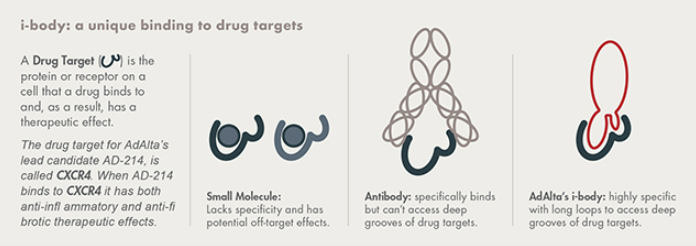
As part of a health education project, this post is the first in a series by AdAlta designed to explain some of the debilitating diseases that impact the population, with no known cures.
AdAlta (ASX: 1AD) is a drug discovery, development and commercialisation company, focused on generating a pipeline of next generation therapeutics to treat challenging diseases in fibrosis and oncology.
Our first series will cover fibrosis. September is Pulmonary Fibrosis Awareness Month. Pulmonary Fibrosis has a literal translation of “Scarring of the Lungs”, so our next blog will cover lung fibrosis in further detail.
🔍 What is fibrosis?
Fibrosis is a condition where excessive scar tissue forms as a result of inflammation or damage, hindering normal functions. It can cause scarring of vital organs such as the lungs, eyes, liver, kidney, heart and skin. The damage cannot be repaired and leads to eventual organ failure.
Impacts
💔 It has been estimated that fibrosis is prevalent in 45% of all diseases.
📊 Fibrotic diseases affect millions of people globally.
💸 Treating fibrosis-related conditions costs billions of dollars annually.
Fibrosis doesn’t just affect organs; it impacts lives! It can cause shortness of breath, fatigue, decreased mobility and leads to organ failure, severely diminishing one’s quality of life.
There is currently no clinically satisfactory therapeutic approach to fibrosis.
AdAlta is using its i-body technology to create a pipeline of new drugs, with an initial focus on treating fibrotic diseases.
🔍 What is an i-body?
An i-body is a human protein that belongs to the class of ‘next generation’ antibodies. It has a long loop that allows it to bind with a target that is causing disease. An i-body is much smaller than traditional monoclonal antibodies. Its unique structure provides a competitive advantage, as it can reach places and bind to drug targets that existing drugs can’t.
🔍 What is a Drug Target?
A Drug Target is the protein or receptor on a cell that a drug binds to, producing a therapeutic effect. The i-body binds with high affinity (the strength of interaction) to a Drug Target, reducing the off-target side effects commonly experienced with small molecule drugs. This also provides access to Drug Targets that traditional monoclonal antibodies can’t reach.
The i-body can be customised to increase the duration of time a drug stays in the body. Our next post will further explain lung fibrosis.

Want to learn more? Visit AdAlta’s fibrosis page.
